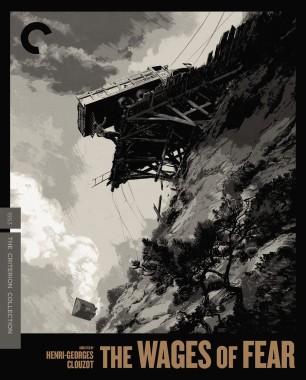
Dennis Lehane’s Top10
Dennis Lehane is best known for his novel Mystic River, made into the acclaimed film by Clint Eastwood. When we discovered his love for Criterion, we asked him to write for us, and he did, contributing a terrific essay to our rerelease of The Wages of Fear.
-
1
Neil Jordan
Mona Lisa
My favorite film of the eighties. Maybe Marlon Brando in Last Tango in Paris and Robert De Niro in Raging Bull can compare with Bob Hoskins’s performance here, but very few others can. Who else could have fully mined the depths of unrequited love and authentic heartbreak while wearing a pair of glittery, heart-shaped sunglasses? Who else could have so completely personified the rage, hope, humor, pathos, and cruel decency at the heart of Neil Jordan’s dreamy masterpiece? No one. Absolutely no one.
-
2
Peter Weir
Picnic at Hanging Rock
I still don’t know what happens in this film, and I’ve seen it three times. And yet each frame is so exquisite you could hang it on a wall. Peter Weir manages to say so many obliquely profound things about repression, innocence, and the price of sexual awakening that he casts an insurmountable shadow over lesser, more concrete films about the same subject matter.
-
3
Jean Renoir
The Rules of the Game
I almost left this off my list, because what’s left to say about it? Renoir celebrates the death knell of the French aristocracy with sublime grace and trenchant satire. No final shot in film history can chill me to the bone like this one.
-
4
Preston Sturges
The Lady Eve
Preston Sturges and Barbara Stanwyck at the height of their respective games. Hilarious, bejeweled with 18-karat dialogue at every turn, and a gleeful assault on the hypocrisy of American sexual mores that persists even now. I still can’t believe this movie ever got made.
-
5
Erik Skjoldbjærg
Insomnia
Christopher Nolan’s American remake was perfectly fine, but it still couldn’t capture the gut-twisting oppressiveness of Erik Skjoldbjaerg’s original. Anchored by Stellan Skarsgard’s impeccable portrayal of a man drowning in his own sins, this is the neonoir that truly turned noir on its head: darkness becomes something you pray for, while light is a straight razor that’s found entrance to your brain.
-
6
Jules Dassin
Night and the City
Richard Widmark’s finest moment. Jules Dassin’s too. Following the ten-cent dreams of a five-cent loser to become a wrestling promoter in the seedy London underworld, Widmark and Dassin locate the authentic heart of noir: working-class tragedy played out for Shakespearean stakes.
-
7
Fritz Lang
M
German expressionism, thinly veiled indictments of the growing Nazi menace, some of the sleekest camera work on record, and Peter Lorre’s groundbreaking portrayal of a child killer who you nearly find yourself rooting for. An unshakable experience.
-
8
Henri-Georges Clouzot
The Wages of Fear
The tensest movie ever made. My favorite French film. Pretty much incomparable on every level.
-
9
Spike Lee
Do the Right Thing
It’s ridiculously sentimental in some parts and maddeningly intrusive in others, and the heart of it depends on the hoary cliché of all white men being virulently racist as a matter of course. And yet . . . who can forget it once they’ve seen it? It’s urgent, unapologetic, and irrepressibly alive. Aliens from the future could find no more fitting an artifact to see America’s soul at the tail end of the twentieth century than Spike Lee’s tone poem to human nature and human chaos.
-
10 (tie)
-
Wes Anderson
The Royal Tenenbaums
Okay, I cheated, but it’s hard not to see these films as of a piece. Two perfectly wrought, drop-dead hilarious films about self-loathing, rage, and clinical depression. When Chas Tenenbaum says, “We’ve had a rough year, Dad,” or Max Fischer tells Herman Blume that his secret to happiness is “going to Rushmore,” the sneaky brilliance of Wes Anderson bubbles up through all the surface whimsy and blows a hole through your heart. If Sturges and Cassavetes had somehow managed to have a love child, it would have been Anderson.















